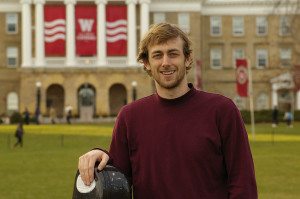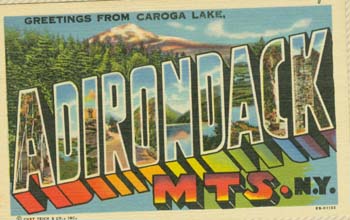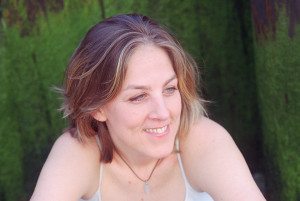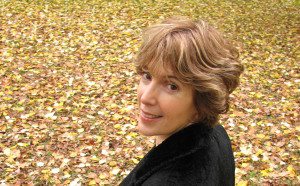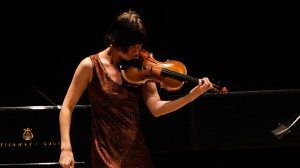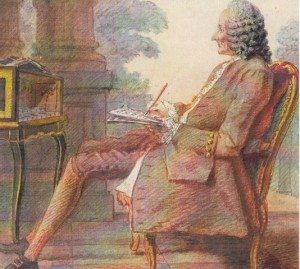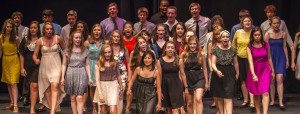In early November, the UW-Madison School of Music will welcome back five graduates of the composition studio who have developed creative, multi-dimensional careers in a range of fields: acoustic and electronic composition, musicology, theory, audio production, conducting, education, concert management and administration, performance, and other fields as well. The two-day event on Nov. 5 & 6 will feature concerts of chamber music and Wind Ensemble music, symposia on marketing, publicity, and career development, and ample opportunities for conversation.
The composers include Jeffrey Stadelman (BM, 1983; MM, 1985), now associate professor of music composition at the University at Buffalo; Paula Matthusen (BM, 2001), assistant professor of music at Wesleyan University; William Rhoads (BM, 1996), vice president of marketing & communications for Orchestra of St. Luke’s in New York City; Andrew Rindfleisch (BM, 1987), professor of composition at Cleveland State University; and Kevin Ernste (BM, 1997), professor of composition at Cornell University.
Music will be performed by the Wisconsin Brass Quintet, the Wingra Woodwind Quintet, the UW Wind Ensemble, and other faculty and students. The works being performed by both faculty and students range from standard instrumentations (woodwind and brass quintets) to unusual combinations (piano, percussion, clarinet, and oboe) to solo works performed by some of our most accomplished students.
Thursday, Nov. 5, 7:30 PM, Mills Hall, free concert. Click for program.
Friday, Nov. 6, 7:30 PM, Mills Hall, free concert. Click for program.
Additional sessions, to be held on Friday, Nov. 6 at the Student Activities Center, University Square:
11:30 – 12:10 Marketing for Musicians
Today, savvy understanding of marketing and pr is a necessity for performers and composers. Learn the basics of building an effective communications strategy to promote and publicize your event, your career, or your new work.
12:15 – 12:55 Publishing for Composers
With power shifting from large publishing houses to individual composers, it’s an exciting time to be a creative artist. Get an overview of the recent history and changes in music publishing and important guidelines on the myriad channels that exist which allow you benefit from the use of your music.
1 PM: Meet Bill Rhoads at CoffeeBytes.
All five composers grew up in Wisconsin or Minnesota, and they provide a variety of career models, in both industry and academia, in both live and electronic music, for our student composers and performers. This may be the first time that a university music school has brought together the alumni of an academic composition program, from a period of several decades, for concerts of their music, workshops with current students, and public informational events.
Here are composer biographies along with comments about their works.
Composer Andrew Rindfleisch has enjoyed a career in music that has also included professional activity as a conductor, pianist, vocalist, improviser, record producer, radio show host, educator, and concert organizer. As a composer, he has produced dozens of works for the concert hall, including solo, chamber, vocal, orchestral, brass, and wind music, as well as an unusually large catalog of choral music. His committed interest in other forms of music-making have also led him to the composition and performance of jazz and related forms of improvisation. “Their brass quintet, ‘In the Zone,’ is a pun on the Italian word ‘canzone,’ a style of piece often written for brass ensembles (the works of Gabrieli are great examples),” says Daniel Grabois, professor of horn. “If an old canzone were fractured and reassembled using a 21st century sensibility, the result would sound like this piece. At times it throbs with the wild abandon of a medieval band, and at other times grooves with the rhythmic snap and clarity of a group of Renaissance troubadours.” (Note: The Wisconsin Brass Quintet will perform “In the Zone” on the Thursday concert.) Listen to Rindfleisch’s music on SoundCloud.
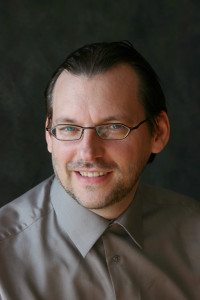
Andrew Rindfleisch
Mr. Rindfleisch is the recipient of the Rome Prize, a John Simon Guggenheim Fellowship, the Aaron Copland Award, and the Koussevitzky Foundation Fellowship from the Library of Congress. Over forty other prizes and awards have followed honoring his music. He has participated in dozens of renowned music festivals and has received residency fellowships from the Bogliasco Foundation (Italy), the Czech-American Institute in Prague, the Charles Ives Center for American Music, the June in Buffalo Contemporary Music Festival, the MacDowell Colony, and the Pierre Boulez Conductor’s Workshop at Carnegie Hall. He holds degrees from the University of Wisconsin at Madison (Bachelor of Music), the New England Conservatory of Music (Master of Music), and Harvard University (PhD).
As a conductor and producer, Mr. Rindfleisch’s commitment to contemporary music culture has brought into performance and recording over 500 works by living composers over the past 20 years. He has founded several contemporary music ensembles and currently heads the Cleveland Contemporary Players Artist in Residency Series at Cleveland State University, and the Vertigo Ensemble at the Utah Arts Festival in Salt Lake City. He has made guest conducting appearances throughout the United States and abroad with many diverse musical organizations; from opera and musical theatre, to orchestral, jazz, improvisational, and contemporary avant-garde ensembles.
Paula Matthusen writes both electroacoustic and acoustic music and realizes sound installations. In addition to writing for a variety of different ensembles, she also collaborates with choreographers and theater companies. She has written for diverse instrumentations, such as “run-on sentence of the pavement” for piano, ping-pong balls, and electronics, which Alex Ross of The New Yorker noted as being “entrancing”. Her work often considers discrepancies in musical space—real, imagined, and remembered. “A pleasant surprise in the Sunday morning program [for the Tanglewood Festival of Contemporary Music] was Paula Matthusen’s piece “of memory and minutiae” (2006), a plaintive, haunting setting of a Norwegian prayer that fragments further with each repetition. Olenka Slywynska gave the soprano line a chantlike quality while cello counterpoint and electronic timbres wove a graceful atmospheric cocoon around it.” Allan Kozinn, New York Times, 2009. Listen to Matthusen’s music on SoundCloud.
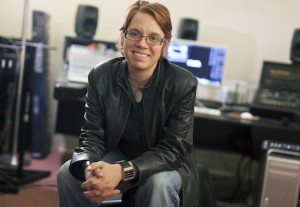
Paula Matthusen
Her music has been performed by Dither, Mantra Percussion, the Bang On A Can All-Stars, the Scharoun Ensemble, Mantra Percussion, Dither Electric Guitar Quartet, Alarm Will Sound, International Contemporary Ensemble (ICE), orchest de ereprijs, The Glass Farm Ensemble, the Estonian National Ballet, James Moore, Kathryn Woodard, Todd Reynolds, Kathleen Supové, Margaret Lancaster and Jody Redhage. Her work has been performed at numerous venues and festivals in America and Europe, including the Tanglewood Festival of Contemporary Music, the MusicNOW Series of the Chicago Symphony Orchestra, the Ecstatic Music Festival, Other Minds, the MATA Festival, Merkin Concert Hall, the Aspen Music Festival, Bang on a Can Summer Institute of Music at MassMoCA, the Gaudeamus New Music Week, SEAMUS, International Computer Music Conference and Dither’s Invisible Dog Extravaganza. She performs live-electronics frequently, often with Object Collection, and through the theater company Kinderdeutsch Projekts.
Awards include the Walter Hinrichsen Award from the American Academy of Arts and Letters, a Fulbright Grant, two ASCAP Morton Gould Young Composers’ Awards, First Prize in the Young Composers’ Meeting Composition Competition, the MacCracken and Langley Ryan Fellowship, the “New Genre Prize” from the IAWM Search for New Music, and recently the 2014 Elliott Carter Rome Prize.
Matthusen has also held residencies at The MacDowell Colony, Yaddo, create@iEar at Rensselaer Polytechnic Institute, STEIM, and the Atlantic Center for the Arts. Matthusen completed her Ph.D. at New York University – GSAS. She was Director of Music Technology at Florida International University for four years, where she founded the FLEA Laptop Ensemble. Matthusen is currently Assistant Professor of Music at Wesleyan University, where she teaches experimental music, composition, and music technology.
Currently Vice President of Marketing & Communications for the Orchestra of St. Luke’s, Bill Rhoads was previously President and Managing Director of Bill Rhoads & Associates, which was promotion agent for several publishing houses, including CF Peters, EC Schirmer, Subito Music and MMB Publishing; and represented the interests of Frank Zappa, John Zorn, Ornette Coleman, Ethel, counter)induction, Fred Ho, and two Pulitzer Prize-winning composers, along with a host of other prominent artists and firms in the music industry. Prior to opening his own firm, Mr. Rhoads was Director of the Concert Music Division for Carl Fischer, LLC in New York.
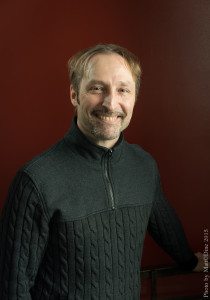
Bill Rhoads
He has been active as board member of the Phoenix Concerts, the Lotte Lehmann Foundation, Wisconsin Alliance for Composers, and co-director of Composers Concordance and E.A.R. (Elastic Arts Room) in New York City. In addition, Mr. Rhoads served the music industry as Communications Advisor for ICE (International Contemporary Ensemble), Board Member for CRI (Composers Recordings, Inc.), and the MPA (Music Publishers Association), as Honorary Advisory Board Member for The Women’s Philharmonic, and as panel member, speaker and judge on numerous committees for organizations serving the needs of composers, educators, and performers, including ASCAP, MENC, and the League of American Orchestras.
His work was influenced by his early experiences as guitarist in several rock bands, his training as an audio engineer and producer, background in philosophy and aesthetics, immersion into the experimental music scene of NYC, and composition studies with Stephen Dembski, Joel Naumann, Joseph Koykkar, John Corigliano, George Rochberg and John Harbison. It has been performed and recorded by ensembles throughout the U.S., including Sequitur and Composers Concordance in New York City, May in Miami Festival, Present Music in Milwaukee; and Bach, Dancing, and Dynamite and Oakwood Chamber Players in Madison. “Written idiomatically, even brilliantly, for the instruments at hand, Scherzophrenia springs from the “and now for something completely different” school of composition. Like John Zorn, its best-known practitioner, Rhoads quick-cuts snippets of familiar styles: cartoon illustrative music, lofty trumpet calls, Brahmsian piano trios, cheesy waltzes, clarinet horselaughs, rim shots. Rhoads wrinkle if to bring back his materials in different contexts – to remix them, as it were.” Tom Strini, music critic, The Milwaukee Journal, 1994. Listen to “Slam,” recorded in 2004.
With deep roots in American modernism, composer Jeff Stadelman has developed over the past 30 years a complex, lyrical musical language that suggests no obvious counterpart. Five CDs containing his compositions have appeared since 2007, including the solo monographic CD, “Pity Paid” (Centaur Records). Los Angeles Times critic Josef Woodard called the music “painterly . . . , deftly dispersed in time and glazed with a dry wit” while Jay Batzner, of Sequenza 21, describes it as a “powerful, caged beast … barely contained by its enclosure.” Listen to Stadelman’s music on SoundCloud.
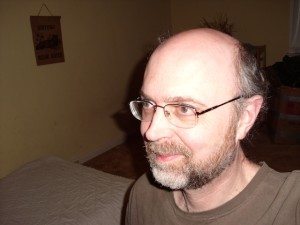
Jeffrey Stadelman
Stadelman sees his music as “obsessed with <i>reference<i>, drawing deep sustenance from the classical works of past and present that most richly exploit possibilities for building associative structures of great beauty.”
Stadelman has received commissions and invitations for compositions from, among others, the Fromm Foundation and Boston Musica Viva, Nuove Sincronie, Concert Artists Guild, Trio Italiano Contemporaneo, Phantom Arts, Bernhard Wambach, Elizabeth McNutt, Jon Nelson and UW-Madison. Grants and awards include those from Meet the Composer, Harvard University, Friends and Enemies of New Music, and the Darmstadt Summer Courses.
Originally from Wisconsin, Stadelman serves as associate professor of music composition at the University at Buffalo, State University of New York, as well as Department Chair. He studied composition as an undergraduate with Stephen Dembski at the University of Wisconsin-Madison, and then with Donald Martino and others for his Ph.D. at Harvard University. His most recently recorded project is a large orchestral work entitled “Messenger,” which appeared in January 2013 on the Navona label. Stadelman writes, “My music tends to be up-tempo and syncopated, with emphasis on independent instrumental lines interacting energetically. People have pointed out that there often seems to be an ironic glaze over the proceedings, and in any case I favor what classical music calls “scherzoso” attitude — playful, even joking. However when my music gets serious, it’s _very_serious indeed. I am always interested in conjuring referential clouds of various sorts, where any particular musical
utterance is heard to ring of, or rhyme with, several others from other sections of the same piece. This music is generally in dialogue with one or more models from the past, and melody always comes first. Very recent works have focused on creating linked canons (rounds) between the instruments, with the actual chords looking backwards historically, but chordal progressions looking in some other direction.”
Kevin Ernste is a composer, performer, and teacher of composition and electronic music at Cornell University where he is Director of the Cornell Electroacoustic Music Center. He was the Acting Director and lecturer at the Eastman Computer Music Center and Co-director of the ImageMovementSound festival.
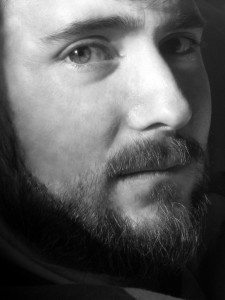
Kevin Ernste
His recent music includes Palimpsest for the JACK Quartet–the result of a 2011 Fromm Foundation Commission, presented recently at the Sweet Thunder Festival in San Francisco and the International Computer Music Conference in Athens Greece, Nisi [nee-see] (“Island” in Greek) for hornist Adam Unsworth released on Equilibrium Records “Snapshots” (CD111), Adwords/Edward, dedicated to NSA whistleblower Edward Snowden and composed for Google Glass, Numina for Brooklyn-based Janus Trio (flute, viola, harp) presented recently at the Spark Festival in MN, Seiend for brass quintet premiered by Ensemble Paris Lodron (Salzburg, Austria, Roses Don’t Need Perfume for guitarist Kenneth Meyer (gtr. and electronic sounds, 2009) recently presented by Dr. Meyer on his 2010 Hungary/Romania tour, a piece for saxophone and electronics called To Be Neither Proud Nor Ashamed (recently released on Innova Records), and Birches for viola with electronic sounds for John Graham performed on Mr. Graham’s recent China tour (Beijing, Wuhan, Xiamen, Hong Kong) as well as at the Aspen Summer Music Festival. Mr, Graham presented Birches again in August 2011 at the International Computer Music Conference (ICMC) in Huddersfield, UK and again in 2012 at CCRMA for the Linux Audio Conference. Listen to Ernst’s music on SoundCloud.
This two-day event is sponsored by the UW-Madison Anonymous Fund and the Mandel Foundation.













